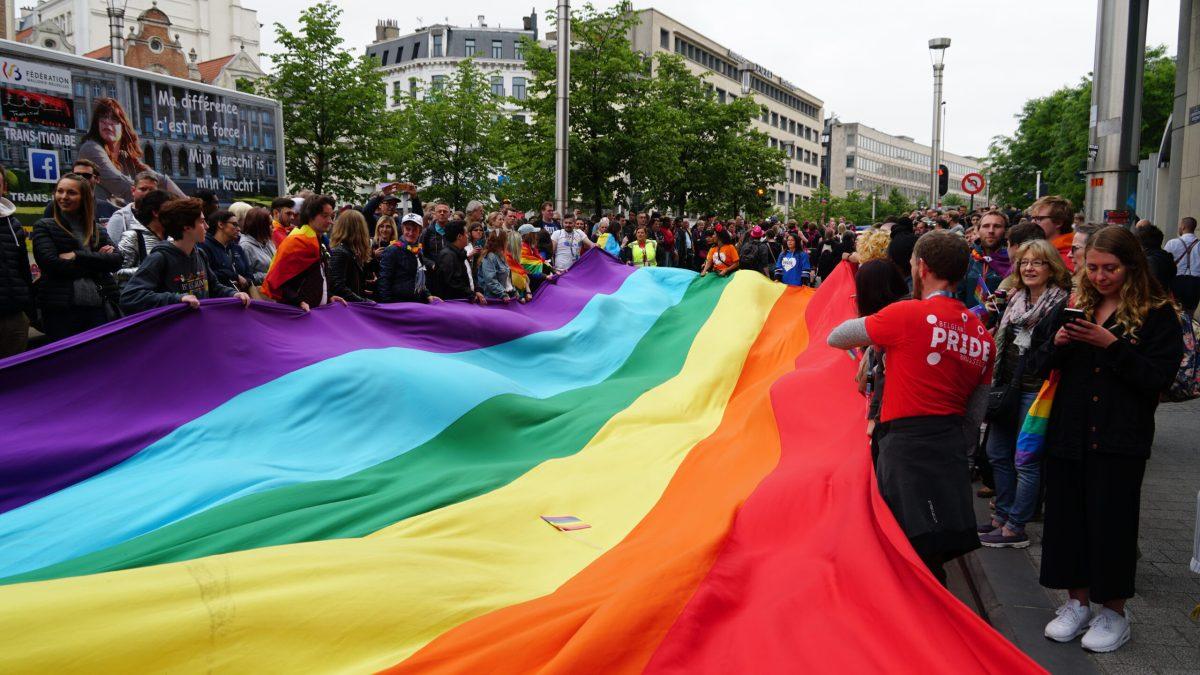“We thought about how we could do something that amplifies the voices of Newark’s creative people who are Black, Indigenous, and people of color (BIPOC); filmmakers; and artists in different ways,” said Denise Hinds, board president of the Newark LGBTQ Community Center. For the last three to four years, the center had looked into the idea of holding a film festival centered around the queer community, and the organizing team was finally able to put it into play on April 14-16 at various locations within Newark.
The COVID-19 pandemic was a substantial factor that impacted the execution of this program. “It prevented us from being able to focus on holding anything as a public event,” she said. The center also had difficulties with maintaining a physical space for the organization, having to move twice in the last three years.
“We originally had a place on Halsey Street, and then we moved to the library because the staff was nice enough to give us space,” Hinds explained. “But we realized over the last few years that it was really not the best place for us in terms of being able to have exposure to the community — the library has certain hours of operation.”
About a year ago, however, the center’s board started seriously thinking about how to execute the idea and formed a group out of New Jersey Performing Arts Center’s LGBTQ Advisory Council. The council was excited about the initiative and became one of the center’s strongest partners for organizing the festival. “We also got interest from individuals in Essex County — LGBTQ+ folks and allies who are artists,” Hinds added.
One of the films that the team wanted to highlight since the initial parts of the planning stage was “The Inspection,” a 2022 film following a young, gay Black man who decides to join the Marines. This was mainly because it would help gain traction from potential audiences if an already-well known piece was in the headlines for the festival.
The committee then put out a call for films to display during the festival, and it received over 90 submissions. “We had a group of folks who took days and days to review all of them, and we made decisions based on our own ratings,” Hinds said.
“We then wanted to make sure that we had predominantly all BIPOC filmmakers. We wanted to ensure that we were capturing any folks who were newer filmmakers in particular. We also made sure that we were covering our community in all its diversity as well,” she continued. “We didn’t want just the [lesbian] representative or just the [gay representative] — we wanted the whole spectrum.”
The team received many international submissions as well, but since it’s the first year of executing this program, the members decided to not look at any of those this time around. They focused on prioritizing the Newark community along with artists within New Jersey. The committee wanted to highlight stories that often don’t get uplifted in major media outlets.
Another challenge the team faced was finding spaces to hold the screenings and events for the festival. Some of these include the Newark Museum of Art, Essex County College, New Jersey Performing Arts Center, and Rutgers Paul Robeson Center.
“Hosting a first-year festival with no real funds dedicated, we found it important to find spaces that would give us the space, and we did find a few,” Hinds commented. “We’ve raised some money to pay for a couple spaces as well.”
The festival had two workshops offered to those who may not have the funds or opportunities to go to a film school but are really interested in understanding more about the film world. “Doing more community engagement and community support — that’s part of the mission of the center, which is why we want to make sure that we keep those workshops front and center,” she mentioned.
Even though she has never lived in Newark, Hinds participated in a Newark church and got involved about seven years ago. “As a Black, gay woman, it’s important to me that our community has opportunities for expression,” she said. “I just love hearing about the different ways that our community shows up in real life in real time. I especially love the documentaries in the festival because it really brings that to life in a way that’s tangible — that we can feel, that we can see, that we can believe.”
Hinds appreciates all the hard work of filmmakers, actors, and anyone involved with this field and is glad to be making a difference in her own small way. She noted that many of the volunteers happened to be younger individuals in high school and college, including some from NJIT. Spectrum, the student-led LGBTQ+ organization at NJIT, announced the film festival to its members after Hinds was able to contact the club.
“It’s really important to us in the planning group that we’re exposing the next generation of queers to their own history and to their own experience — to help them to see and know the possibilities of what queer life can be,” she concluded. “These stories need to continue to be told. We don’t do this for ourselves.”

























